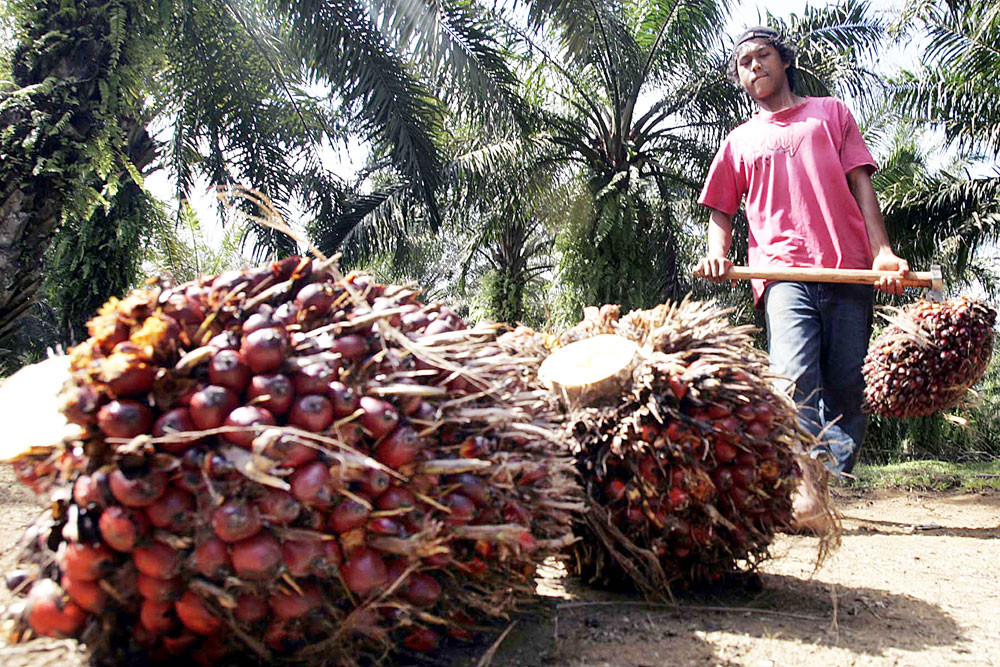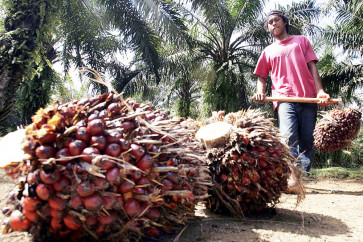Popular Reads
Top Results
Can't find what you're looking for?
View all search resultsPopular Reads
Top Results
Can't find what you're looking for?
View all search resultsIndonesia risks palm oil exports if progress not made on sustainable cultivation, experts warn
Center for International Forestry Research (CIFOR) senior scientist Herry Purnomo warned that concerns about the sustainability of the commodity had now stretched beyond the EU, with similar concerns being expressed in North America and Australia.
Change text size
Gift Premium Articles
to Anyone
T
he snail-like pace at which Indonesia is improving the sustainability of its palm oil agriculture in the face of mounting pressure from global trade players could jeopardize the commodity’s future, experts have warned.
Among the critics of Indonesia’s palm oil agriculture management is Bogor Agricultural University (IPB) forestry expert and Center for International Forestry Research (CIFOR) senior scientist Herry Purnomo, who said at a public discussion on Thursday last week that concerns about the sustainability of the commodity had now stretched beyond the EU, with similar concerns being expressed in North America and Australia.
Echoing Herry’s warning, climate change and environment counselor of the EU delegation to Indonesia Michael Bucki urged Indonesia to take action to curb deforestation caused by palm oil cultivation, which he said would impact “future generations, everyone, not only people of the EU.”
“What the EU people want is sustainable palm oil. So it’s a supply and demand [matter]. If there are sustainable palm oil products from Indonesia, we [EU] have the market. And the EU has an open market,” he said during the forum held by CIFOR. The bloc, he added, would prepare a review on biofuel between 2021 and 2023, with more dialogue to take place between the EU and the Indonesian government about sustainability in the meantime.
The CIFOR discussion was held amid the prolonged feud between the two trading partners over the commodity, with Indonesia committed to fighting the EU’s ban on the use of palm oil for biodiesel, in addition to tariffs imposed on subsidized palm oil imports from Indonesia.
However, the EU is not the only developed market that has frowned upon the commodity’s cultivation because of the associated social, health and environmental. Numerous NGOs have also blamed palm oil cultivation for causing extensive forest clearing and destruction.
Nevertheless, Indonesia has been making some attempts to mitigate the issue of deforestation. A 2019 Environment and Forestry Ministry report revealed that 0.44 million hectares of forest had been cleared between 2017 and 2018, which is a continuation of the slowing rate of deforestation that saw 0.48 million ha cleared from 2016 to 2017, 0.63 million ha from 2015 to 2016 and 1.09 million ha from 2014 to 2015.


















